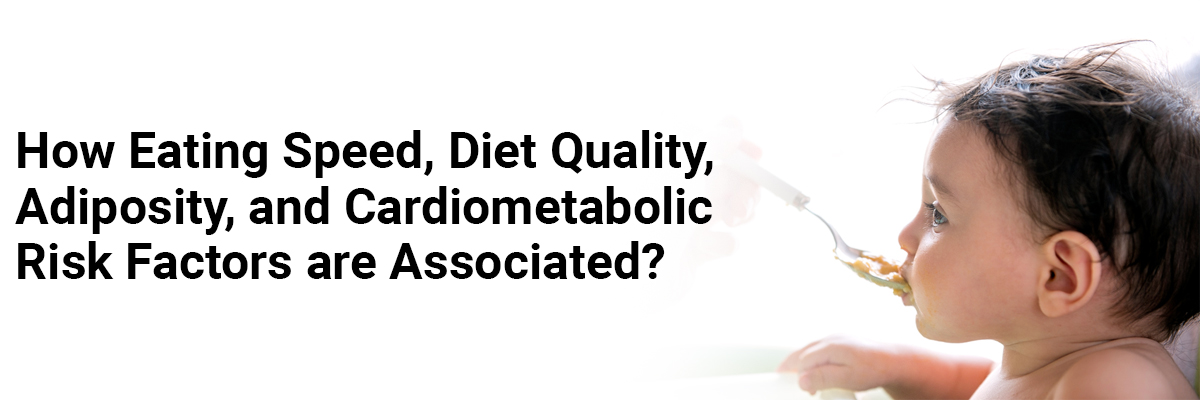
 IJCP Editorial Team
IJCP Editorial Team
How Eating Speed, Diet Quality, Adiposity, and Cardiometabolic Risk Factors are associated?
The present study assessed the relationship between eating speed, adiposity, factors predicting cardiometabolic, and diet quality in preschool children.
The study enrolled 1371 preschool-age children (49% girls; mean age, 4.8 ± 1.0 years) utilizing the Childhood Obesity Risk Assessment Longitudinal Study (CORALS) sample. After exclusions, it included 956 participants in the analyses. The study estimated eating speed by summing the total minutes used in each of the three main meals and then categorized them into slow, moderate, or fast.
It assessed the relationship between eating speed and body mass index, waist circumference, fat mass index (FMI), blood pressure, plasma glucose(fasting), and lipid profile.
The study observed a higher prevalence risk of overweight/obesity; larger waist circumference; and greater FMI, systolic blood pressure, and plasma glucose (fasting) levels but lower adherence to the Mediterranean diet among participants in the fast-eating category compared to the slow-eating category.
This study shows that fast eating renders higher adiposity, specific cardiometabolic risk factors, and lower adherence to a Mediterranean diet. Further long-term and interventional studies must validate these associations.
Garcidueñas-Fimbres TE, Paz-Graniel I, Gómez-Martínez C, Salas-Salvadó J, Babio N. Associations Between Eating Speed, Diet Quality, Adiposity, and Cardiometabolic Risk Factors. The Journal of Pediatrics. 2023;252:31-39. DOI:https://doi.org/10.1016/j.jpeds.2022.08.024

IJCP Editorial Team
Comprising seasoned professionals and experts from the medical field, the IJCP editorial team is dedicated to delivering timely and accurate content and thriving to provide attention-grabbing information for the readers. What sets them apart are their diverse expertise, spanning academia, research, and clinical practice, and their dedication to upholding the highest standards of quality and integrity. With a wealth of experience and a commitment to excellence, the IJCP editorial team strives to provide valuable perspectives, the latest trends, and in-depth analyses across various medical domains, all in a way that keeps you interested and engaged.





















Please login to comment on this article